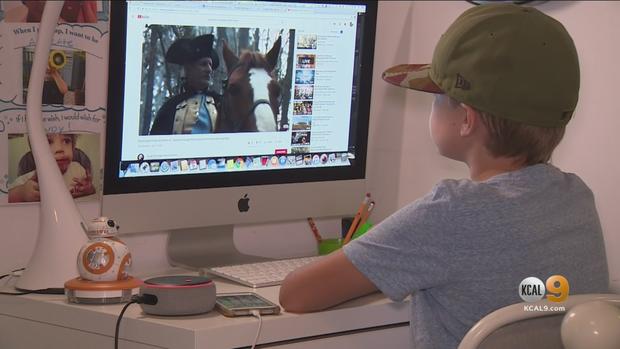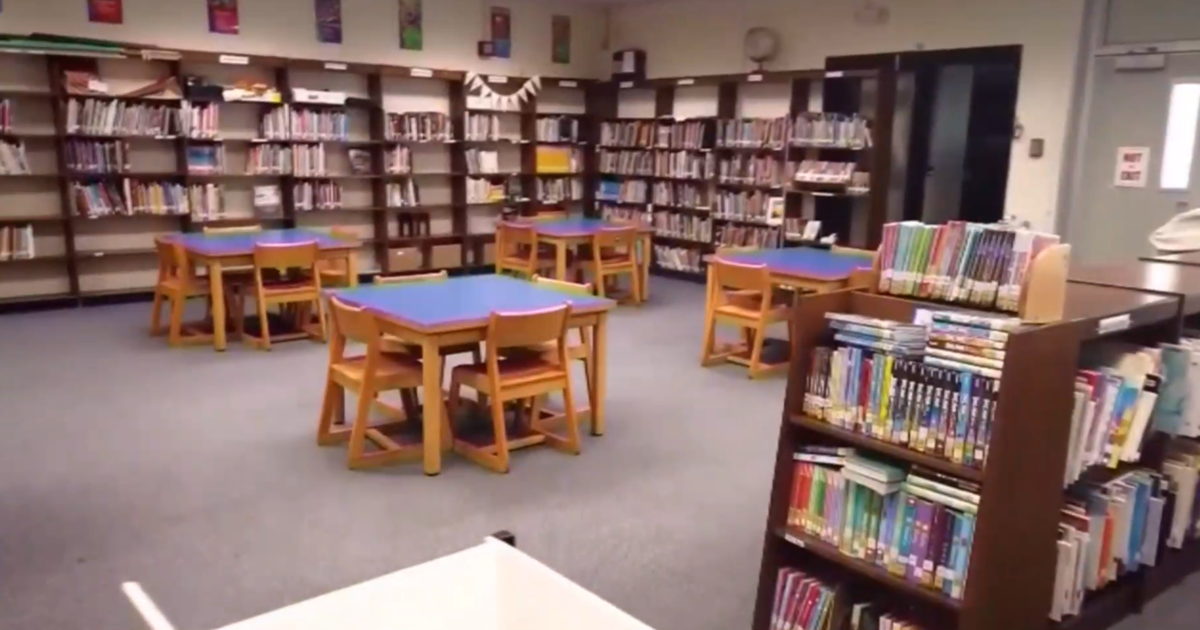'Further Widening The Educational Gap': LAUSD Parents Say Students Left Behind During Pandemic Due To Lack Of Specialized Teaching, Internet Access
LOS ANGELES (CBSLA) — A new study commissioned by the Los Angeles Unified School District found that low-income, Black and Latino students participated in remote learning last spring at lower rates than more advantaged student populations.
The findings confirmed what parent Renee Bailey already knew from experience, that certain segments of the school community lagged behind their more advantaged peers.
"Ever since the pandemic, my son has not received any of his contracted services that have been identified in his [Individualized Education Program]," she said.
Bailey's teenage son, who needs specialized education due to his disabilities, is enrolled in an LAUSD school. The study found that among middle and high school students with disabilities, like Bailey's son, the peak participation rate during remote learning was only about 55%.
"It's just further widening the educational gap and, down the line, the wealth gap," she said.
The study also found that non-disabled Black and Latino students participated at much lower rates — about 10-20% behind their white and Asian classmates.
"We have to understand that this moment today in 2020 will have longterm ramifications, three, five, seven, 10 years from now," Tyrone Howard, a professor and director of UCLA's Pritzker Center for Strengthening Students and Families, said.
Howard said low participation rates could lead to higher dropout rates over the next decade.
"We know that young people who do not graduate from high school are less likely to find sustainable work," he said. "They're going to make less money over their lifetimes. There's a correlation between those who don't finish high school and their involvement in the penal system."
And while the study did not indicate possible causes for the disparities, one parent said her community struggled to connect online.
"A lot of parents, such as myself, didn't have internet access in the beginning," Yazmin Arevalo said.
Arevalo also said that, while she was eventually able to get internet access through the district, she faced other challenges as a single working mother.
"I had to decide whether to work, or to be with the kids," she said.
Howard said the district needs to get creative in the coming months to reach students most in need.
"We have to do some old school things, such as getting out and knocking on doors and calling parents and caregivers," he said. "I don't think we can rely on technology to find where folks are when they're not connected technologically."
Maywood Elementary School teacher Marianne Valencia said, despite having mostly low-income and students of color, she had almost full participation.
"It was calling the parents on a daily basis," she said. "Some might have been upset that we were calling a lot and leaving text messages and whatever we can do, I mean, smoke signals, you know, anything to get the parents to contact us, let us know what's going on so we can help you."
LAUSD said it had not yet finalized its plans for remote learning for the upcoming school year, but said it would provide those in need with devices and internet access.




